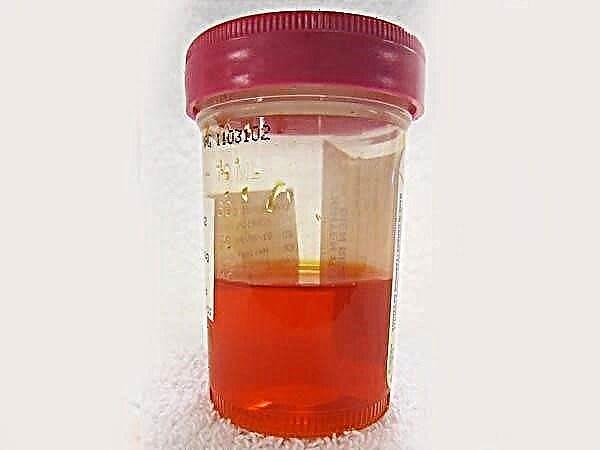
To understand that a child is ill is usually not a problem for attentive parents. The baby's temperature rises, a runny nose, cough appears, and appetite disappears. Sometimes adults notice that the crumbs have a hoarse voice. And this is a rather alarming symptom that all moms and dads must know about. The famous children's doctor Yevgeny Komarovsky tells why this happens, how it is dangerous and what to do if hoarseness is observed.

Causes
There are vocal cords in the larynx, which are most directly involved in the formation of sounds. These ligaments themselves are very mobile. However, their mobility is easily disturbed, modified if swelling and inflammation occurs in the throat, where the ligaments are attached.
Many parents mistakenly believe that if a child has a hoarse voice, then this is exclusively a consequence of hypothermia or a cold.
Anything can cause inflammation of the larynx, and most often the reason lies in a viral infection.


- Most respiratory viruses enter the child's body through the nose, and this leads to a runny nose. Mucus, which is produced in response to the penetration of an extraneous foreign agent, accumulates and disrupts nasal breathing. But some of the viral particles survive and pass further - along the nasopharynx into the larynx, and there an inflammatory process begins, which changes the parameters of the functioning of the vocal cords.
- The second most frequent reason, according to Evgeny Komarovsky, is an allergic reaction. Protein antigen, which is alien to the baby's immune system, causes rejection in its address, and therefore the allergy is quite "inventive" for various symptoms, including sore throat.
- Hoarseness can occur after an injury to the larynx, for example, from a burn if the child has swallowed something very hot. Often, caring mothers, in an attempt to quickly cure a baby from ARVI or influenza, make steam inhalations, during which the child also receives a burn of the mucous membrane of the throat. After such "procedures" a sick, but not hoarse child, becomes hoarse.
- Also, the voice may grow hoarse after a long heart-rending cry from mechanical injury to the vocal cords. It goes away on its own - the ligaments are restored pretty quickly.
- Less often, but this can happen, sore throat causes bacteria. Usually, such an ailment will not only be accompanied by hoarseness, but also high fever.

The danger
The danger of this symptom, whatever it may be, according to Evgeny Komarovsky, is that any inflammatory process in the larynx in a child can lead to impaired airway patency and normal ventilation.
An additional risk is created by the anatomical feature of the children's throat - it is narrower than in adults, and therefore the edema develops much faster and more aggressively.
The appearance of a hoarse voice is an unambiguous reason for going to a doctor, and the sooner the parents provide consultation with a specialist, the better, because the child may have difficulty breathing at any time. The doctor's task is to quickly identify the cause, the focus of inflammation and prescribe the appropriate therapy.

Sometimes a hoarse voice is a sign of a life-threatening disease like diphtheria croup. Now, when all children are required to be vaccinated against diphtheria, the incidence of this disease has dropped significantly. But it is impossible to exclude such a possibility even in a vaccinated baby. For this, a doctor is needed, who will first of all check if the baby has diphtheria.
In case of severe sudden hoarseness it is necessary to call an ambulance. Before the arrival of doctors, parents should provide the baby with first aid on their own, especially if signs of shortness of breath are already observed - this is abundant drinking and complete rest.

Treatment
Treatment depends on the cause of the hoarseness.
In acute respiratory viral infection, no specific therapeutic measures are necessary.
It will be good if the parents water the child more abundantly in order to prevent the mucus from drying out in the nose, larynx and bronchi, and also create favorable conditions for the baby's recovery: the air humidity in the room is 50-70%, and the air temperature is 18-20 degrees.
And no heaters. In addition, you can instill a saline solution into the nose and gargle with it.
In case of allergies, the child will definitely need a consultation with an allergist, who will help to establish, using special tests, the type of allergen that caused an inadequate reaction of the body. Treatment consists of eliminating the cause of the allergy. In severe cases, anti-allergic antihistamines are prescribed.


In case of bacterial inflammation, the doctor will prescribe antibiotics without fail. Which ones - it will become clear upon examination, analysis of other symptoms. Usually, these are drugs of the penicillin group.
When injured, the child needs rest. And this will be the main medicine. You should play in silence, do not try to talk at any cost.
In severe cases, the doctor will complain about rinsing with furatsilin, treating the larynx with an antiseptic such as Miramistin, and inhalations with special formulations based on adrenaline, which cause spasm of the laryngeal vessels. As a result of their application, puffiness decreases, the glottis opens, breathing is restored.


Hoarseness after sleep
Sometimes parents pay attention to the fact that the child wakes up hoarse in the morning and clears his throat and recovers for some time after waking up. This phenomenon is associated, according to Evgeny Komarovsky, with the fact that in the larynx, in particular in the region of the vocal cords, natural secretory mucus dries up at night.
This is due to the fact that the baby breathes too dry air. It is enough to moisturize it, and the hoarseness of the night will stop.

The child is hoarse after an illness
This symptom is alarming. If ARVI has already been left behind, and the baby feels better, then sudden hoarseness may indicate the addition of a secondary infection, very likely a bacterial one. Do not wait to see if it will go away on its own, or shortness of breath will still appear, but you need to immediately call a doctor at home.


Doctor Komarovsky's advice
Do not give up the diphtheria vaccine. This will help protect the child from an extremely dangerous disease that only begins with hoarseness.
If a child's voice is hoarse during the day (as happens, for example, with laryngitis), then parents should be prepared for the fact that the baby may have breathing problems at night. You should humidify the air well, prepare an abundant warm drink so that it is at hand, and prepare a phone to call an "ambulance" if it becomes very difficult for the baby to breathe.
Tempering increases the general immunity of the child, and hardening of the throat increases local immunity. Dr. Komarovsky claims that there is a hardening method that all children, without exception, will really like - this is everyone's favorite ice cream. The more often the child eats it in small portions, the better for the larynx.


Dr. Komarovsky will tell you more about the hoarse voice of a child in his program.



